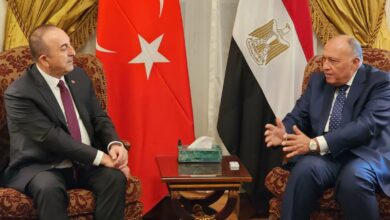TRIPOLI — A powerful Libyan militia will not heed a government request to disband because the incentives on offer are not generous enough, the force's leader said, demanding houses, cars and loans for his men so they can "realize our dreams."
Militias fought to end Muammar Qadhafi's 42-year rule, but five months later their heavily-armed units are still patrolling the streets, answering only to their own commanders and flouting the authority of the country's new rulers.
The National Transitional Council (NTC), or interim leadership, wants militias to fuse into the new national police force and army, but so far only a small proportion of the militiamen have joined up.
"The revolutionaries (militia fighters) will not join the government initiative until they clearly know what are the benefits they will receive," said Abdullah Naker, commander of one of the two big Tripoli-based militias.
"The people need higher salaries, economic stability, medical insurance, houses and cars, young single men want to get married," Naker said on Libyan television late on Sunday.
"We want Islamic, interest-free loans so that we can live in prosperity. Why doesn't the government give us loans of 100,000 Libyan dinars to realize our dreams?"
Many Libyans suspect the militias are reluctant to disband because they are hoping to translate their military muscle into power and influence in the new Libya.
Human rights groups have warned that the militias are trampling on human rights and threatening to undermine Libyan ambitions to build a just, democratic state.
Naker, who says he has about 20,000 men under his command, announced on Monday that he was forming a party to contest the country's first election, scheduled for later this year.
Naker's party is likely to face a challenge from Abdel Hakim Belhadj, a former Islamist militant and head of a rival Tripoli militia. Belhadj say he is planning his own political movement and his Islamist ideology appeals to many voters.
But Belhadj has been accused by some of his opponents of being a proxy for Gulf states trying to influence the direction of post-Gaddafi Libya.
Asked about the risk of foreign interference in the election, Naker told Reuters: "We will not allow political corruption. We accept honorable competition, and may the best team win. But we will not tolerate dishonorable competition supported by foreign funds and forgery."




